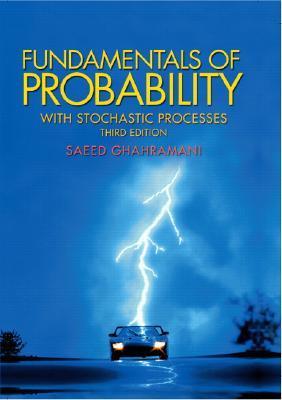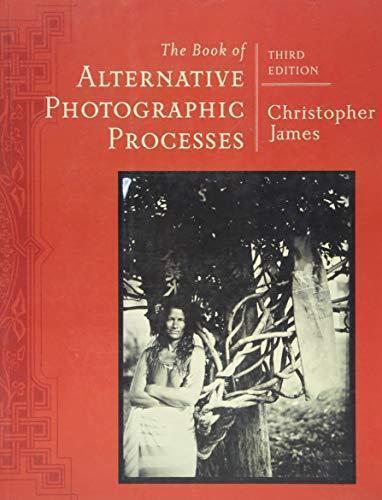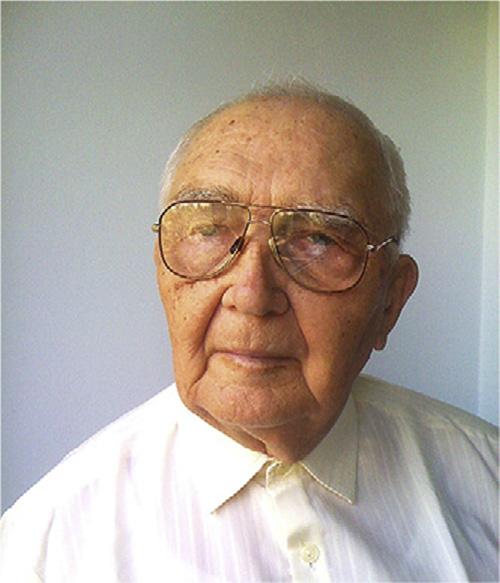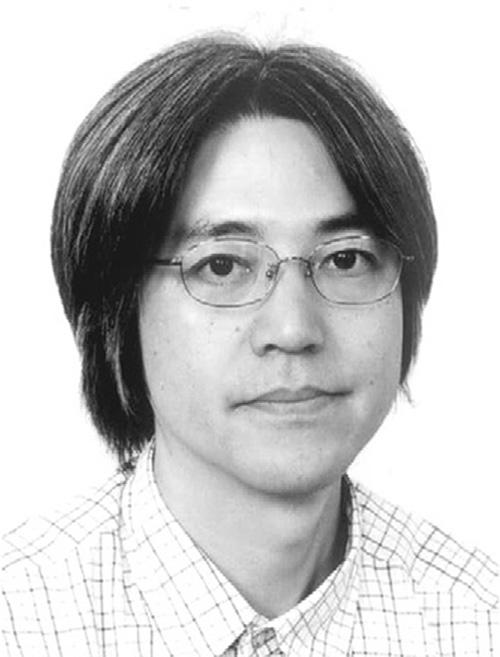Prefacetothe firstedition
In1966,areportpublishedbytheUKDepartmentofEducationandScienceintroducedtheconceptoftribology,whichwasdefinedasthescienceofinteractingsurfacesinrelativemotion.Tribology,asa “newscience,” studiesfriction,wear,and lubrication.Thesethreeprocessesaffecteachotherwithinteractingcausesandeffects: tribologyisthestudyofthemastheyinteract.
Abrasivemachiningprocessesarepartofthelarge fieldof “manufacturingprocesses” andinclude:grinding,super finishing,honing,lapping,polishing,etc.The commoncharacteristicoftheseprocessesisthefactthatthemainstockremovalmechanismistheabrasiveprocess.But,differentfromclassictribology,inthiscase “abrasivewear” isausefulprocess,helpingremoveunwantedmaterialfromworkpieces.Atthesametime, “abrasivewear” isanegativetermwhenappliedtoabrasive toolswhich,duringallabrasivemachiningprocesses,exhibitpredominantabrasive wear.
Mostabrasivemachiningprocesseshavebeenstudiedverylittleandmostofthe studiesweredeterministic,basedonexperimentsandexperienceandlessonscience. Itisoftensaidthatabrasivemachiningprocessesaremoreanartratherthanascience.
Thisbookisanattempttointroducescienceintothestudyofabrasivemachining processes.Theauthorsconsideredthatthe “marriage” betweentribologyandabrasive machiningprocessesisagoodmatchbecausetribologyprovidestherighttooltostudy theseprocesses.Themaincharacteristicofabrasivemachiningprocessesisthatthese processesaremorerandomthanmanymanufacturingprocesses.Tribologyoffersa goodapproachfordescribingabrasivemachiningprocessesandofferstheabilityto predictsomeoftheoutputsoftheprocesses.
Thisbookaimstobringattentionbacktotribology.Tribologywasfashionablein thesixties,buttodayacademiaandtheresearchcommunityintheU.S.,Japan,andto someextentinEuropeconsiderthe fieldoflessimportance.IaskedDr.Ernest Rabinovicz,oneofmymentorsinthe fieldoftribology,whythishappened.He answeredthattheconceptoftribologywasoversoldinthemid1970sandvery soonothertopicsbecamemorefashionable:robotics,manufacturingsystems,etc.
Thisbookconsidersknowledgeinthe fieldoftribologyasatoolforthestudyof abrasivemachiningprocesses.Thiswillhelptoexplainscientificallyeachprocess aswellastoquantifytherelationshipsbetweenthemainparametersinvolvedin abrasivemachiningprocesses.
Inthisbook,weconsidertheimportantelementsoftheabrasivemachiningsystem andthetribologicalfactorswhichcontroltheeffi ciencyandqualityoftheprocesses.
Sincegrindingisbyfarthemostcommonlyemployedabrasivemachiningprocess, itwillbegivendetailedconsideration.Byunderstandingtribologicalprinciples,it ispossibletoproposeprocessimprovementsandsolutionstomanycommonly experiencedindustrialproblemssuchaspooraccuracy,poorsurfacequality,rapid wheelwear,vibrations,workpieceburn,andhighprocesscosts.
Thechapteronkinematicsexaminesfactorsaffectingthesize,shapeandvariability ofthematerialintheprocessofbeingremoved.Thesefactorsinfluencethewearofthe abrasivetool,thesurfaceroughnessofthemachinedparts,theprocessforcesand energy,andthesurfaceintegrityoftheworkpiece.Whereastraditionaltextsassume auniformdistributionofabrasivegrains,thisanalysisaddressestheeffectsofvariable graindistributions.
Traditionally,itisassumedthatthemachiningenergyisdistributedoveranarea representedbythegeometryoftheundeformedcontactbetweentheabrasivetool andtheworkpiece.Thechapteroncontactmechanicsrevealsthatthisassumptionis quitemisleadingformanycasesofprecisionmachiningandprovidesamorepractical analysis.Realistically,thepowerdensityinthecontactzonemaybelessthanhalfthe valuegivenbytraditionalcalculations.
Thestudyoffriction,forces,andenergyexplorestheimportanceofthevarious factorswhichgovernthestressesanddeformationsofabrasion.Theeffectsofgrain shape,depthofpenetration,andlubricationontheprocessforcesareexplored.
Withknowledgeofcontactmechanicsandprocessenergy,theprinciplesofheat transfercanbeappliedtoexploretheeffectofprocessvariablesonsurfacetemperaturesandsurfacequality.Itisalsoshownhowthermalprocessesdefinepermissible domainsofoperationrangingfromcreepgrindingwithdeepcutsatlowworkspeedstoconventionalgrindingwithshallowcutsathigherwork-speedsto high-efficiencydeepgrindingwithdeepcutsatextremelyhighremovalrates.
Process fluidsplayimportantrolesincoolingandlubrication.Newinformationis providedontherequirementsforeffective fluiddelivery.
Furtherchaptersdealwithimportantaspectssuchasassessmentoftheworkpiece surface,thegrindingwheeltopography,thenatureofabrasivetools,dressing processes,freeabrasiveprocesses,lubricantsandprocess fluids,tribochemicalprocesses,andthecharacteristicsofworkpiecematerials.The finalchapterexamines somefundamentalinformationaboutdeformationprocessesrevealedthroughmoleculardynamicssimulation.
Thereadershouldnothavetoreadeverychapterconsecutivelytounderstandthe developmentofthesubject.Thematerialispresentedinalogicalordersothatareader canreferbacktoearlierpassagestofullyunderstandsomeaspects.
Thereadercanusethistextasareferenceworktodirectlyaccessatopicofinterest. Itisdesignedtomakethematerialaccessibletotechnicians,undergraduates,andgraduates.Thebookcouldwellformthebasisforaseriesoflecturesforaspecialized courseatanyoftheselevels.
Theideaforthisbookcametomeintheearly1980swhen,inaCIRPpaper,I publishedatablewhichcontainedtheanalogybetweentechnologicalparameters andtribologicalparametersforthegrindingprocess.Ihavehadtheprivilegetospend manyyearsinEurope,manyyearsintheUSandalotoftimeinJapanduringthelast
Another random document with no related content on Scribd:
mouth, till they filled every cottage, and reached even the recesses where the gipsies made a home. Draper and Faa came forth over the down to hear what the schoolmaster had to tell, and returned thoughtful to the tent where Mrs. Draper was looking out for them.
"Then the winters will pass over us in a ceiled house," said she, when she had heard the news. "We must join our tribe in London from the first autumn fog till the last spring frost."
"You and yours," said one of the men, who was weaving the rush bottom of an old chair. "We men may work in the free air, though there will be stones instead of turf under our feet. Many chairs to mend in London."
"But no night-play to fill the pocket and sharpen the spirits," old Faa observed. There was nothing in cities that he liked so well as his task of the last night,--to stand on the ridge as a watch upon the sentinel, and stoop, or hold himself erect, according as the sentinel turned his back or his face, that the lads in the furze might know when to creep forward on all-fours, and when to lie still. It was far pleasanter to see them all collected safe in the shadow of Shooter's Bottom, ready for work or fighting, whichever might befal, than to mix in the medley of bustling people in London streets, who were too busy in the lamplight to heed the stars overhead, which, indeed, it took some time to make out through such an air.
Mrs. Draper would forgive the air for the sake of the warmth and shelter; and the children would excuse everything for the sake of being seventy miles distant from Mr. Pim's school-room. The younger of the men hoped that the "ruin of the coast" might be delayed beyond another winter; that if they might no more have the pleasure of handing bales of silk ashore during unlawful hours, tubs of spirits might yet cross the surf between sunset and sunrise.
"The 'ruin of the coast!'" cried Elizabeth, as the words struck her ear in passing some of the cottages. "Dear me! has anything happened to the fish, I wonder." She soon found,--what she ought to have known before,--that fish are not always the chief concern of fishermen on the coasts of a land where trades are severally "protected." Let the fish swarm in the waters as the motes in the
sunbeam, and the coast may be not the less ruined in the opinion of fishermen who grow sophisticated under a bad law.
The wives looked melancholy, as in duty bound, at the extraordinary cruelty of which the government was going to be guilty,--at the very irksome caprice by which it was endeavouring to prevent itself from being cheated, as heretofore, for the advantage of those who mocked, and occasionally murdered, its agents. The good wives thought it very strange of the government to interfere with their husbands. To set spies was bad enough; but to take away their best occupation was a thing not to be borne patiently. No wonder Ned kicked away his nets, and Jem cursed the child, and Dick left his boat, and said he should go to the parish, as his prime work at sea was taken from him. As for the children, they looked as much dismayed under the shadow of evil tidings as their mothers had done in childhood, on being told that Buonaparte and his French were coming ashore to cut all their throats. As soon as they dared speak, there was many a wail of "O mammy, mammy! are they going to 'ruin the coast?'"
Elizabeth thought she would make haste to the down, and tell her sister the dismal story. Breasting the wind as hardily as Matilda herself could have done, she arrived at length at the station-house, unable, for some time, to find breath for her tale. The signs of consternation below had attracted Matilda's notice; and she, too, had dared the wind, to look for the cause through the telescope, which was her favourite companion when the Lieutenant was absent. Her smile at the news surprised Elizabeth, pleased as she was with her own prospects under the new arrangements.
"I should not have thought," she observed, "that you would care so much about the matter. It will be very pleasant, to be sure, to have as much French silk, without breaking the law, and being searched, and all that kind of thing, as we like to buy; but really, if you were to see the distress of those poor people below;--the children,----"
"Ah, the children! I am sorry for their fright; but they will soon be comforted. For their parents my pity is at an end. Yonder are their boats and tackle, and strong arms to use them; and there is the
great and wide sea, where they may innocently get the bread by which they profess to live. This is better than stealing the bread from those who have no sea at hand from whence to fetch their food. I cannot pity those fishermen, Elizabeth: I cannot be sorry at this news. Remember, there are places full of a woe, compared with which the vexation of the people you pity is mirth;--chill chambers, where little ones have no heart to play, but crowd together to keep warmth in them;--alleys, where the wife, who is no longer wanted at her husband's loom, holds out her hand for the alms which her brave-souled husband has not the courage to ask;--hearths, where the mechanic sits with his arms by his side, looking into the empty grate, and thinking of stirring times gone by. When the wife comes in with this news, gathered from the street-talkers, he will leap up, look to his loom, and play with his shuttle as a child with a new toy. Hope will warm his heart from that moment,--hope will be in his face when he hurries out to hear if the news be true,--hope will be in his speech when he returns. These, multitudes of these sufferers, are they whom I have pitied; and for them, therefore, you must let me now be glad."
END OF THE FIRST PART.
W. CLOWES, Stamford-street.
THE LOOM AND THE LUGGER.
PART II. A Tale.
BY HARRIET MARTINEAU.
LONDON: CHARLES FOX, 67, PATERNOSTER-ROW. 1833.
PREFACE.
Some of my correspondents will not be surprised at the notice I find myself compelled to give, that I shall henceforward take in no unpaid letters, directed in an unknown handwriting, which have not the name of the writer superscribed. The tax of postage for anonymous flattery or abuse is one to which I cannot be expected to submit.
As for the other tax,--on time,--thus imposed on myself and others, it may supersede some of it to declare, once for all, that no appeals to me, whether made in print or by letter, anonymous or avowed, have or shall have any effect upon me, unless they are addressed to my reason. If my arguments are open to refutation, I shall be thankful to have them refuted. If my views are founded on a false or narrow induction, the most acceptable as well as the truest kindness will be to show me where lies the error or deficiency. As an illustrator of truth, it behoves me to listen, with the utmost respect, to applications like these; but, as a vowed servant of the people, I am not at liberty to attend to appeals to my individual interests, whether presented in the form of evil prognostications, of friendly cautions, or of flattery, gross or refined.
What I have just said is applicable to only a few individuals, to some of whom I owe gratitude for kind intentions, and towards others of whom I feel more concern than resentment. To those to whom my work has been, in my own heart, dedicated from the beginning,--the people,--I have only to say that their generous appreciation of my object is so effective a support and stimulus, that nothing troubles me but a sense of the imperfection of my service; and that the most precious of my hopes is, that I may become
capable of serving them with an ability which may bear some proportion to the respect with which I regard their interests.
H. M.
THE LOOM AND THE LUGGER.
PART II.
CHAPTER I.
THE COOPERS AT HOME.
A fine spring shower was falling one May morning, in 1826, when Mrs. Cooper, the weaver's wife, was busily engaged in dusting her husband's loom, taking advantage of the interval between the finishing of the piece with which he was now gone to his employer, and the beginning of the new one which he expected to bring home. Many weavers are as averse to dusting and cleaning taking place in their peculiar department as the most slovenly bookworm. They appear to believe that a canopy of cobwebs sheds as important an influence on their work as the student expects from the midnight lamp. Old Short was one of these, and Mrs. Cooper, therefore, thought herself fortunate in his absence at the same time, and on the same errand with her husband. She might not only clean her husband's loom in peace, but have a touch at the old man's, in the hope that the removal of some ells of cobweb, and an ample measure of dust, might escape his notice. Having opened the windows wide to admit the air freshened by the pattering shower, she sang to her baby,--still so called, though now nearly three years old,--encouraging, from time to time, the imperfect imitations of the child as he stood pulling buttercups to pieces at a chair, and cramming the remains through holes in its rush bottom. There were hopes that the child would, at some future day, be perfect in this song, for Short sang it from morning till night; and, when he was absent, Mrs. Cooper unconsciously took it up as often as she looked towards his end of the room. She was very tired of hearing it, too; but it was such a good exchange for the grumblings of former years,
that she never found fault with the melody, and made up her mind to hear it hourly for the few years old Short might have to live. But why had he left off grumbling? For a reason which does not prevail with all grumblers,--that he had nothing to complain of. For two years Mr. Culver had given him constant employment, and paid him well; and he heard so much on all sides of the great relief to the manufacturers from the reduction of the duties on raw silk,--a reduction permitted in order to prepare the manufacturers for a fair competition with the French when the prohibition of foreign silks should cease,--that he became less confident in his predictions that the trade would be found to be ruined; that the French would carry all before them; and that the last days of Spitalfields' industry were approaching. He had so often emphatically taken his neighbours to witness that he was weaving his last piece, and been presently found weaving another, that he had now let the subject drop, and adopted the more cheerful saying, "Sufficient unto the day is the evil thereof." This served his purpose very well, though he would have found it difficult, if questioned, to point out what evil he proposed thus philosophically to endure. In summer, to be sure, it was sometimes hot; and the days went on to grow dark early in winter; but the Coopers were kind to him, and able, through their own prosperity, to take good care of him. The child was readily admitted to be any thing but a plague; and with fifteen shillings a-week wherewith to answer his own small wants, the old man was not only abundantly supplied for the present, but had been able to accomplish one or two objects which he had long had at heart. His burial money was safely laid by; and he had bought a venerable Bible, which had been discovered by a neighbour lying on a bookstall, with his grandmother's birth entered on the fly-leaf. Short could not read; but he was uneasy as long as this Bible lay on the stall, liable to be tossed about without any pretence of consideration for his grandmother's name. Here it was now, deposited on the highest shelf of the cupboard, so that there was no fear of the child getting to it before he should be sixteen, unless on a Sunday morning, when it was regularly taken down to be dusted. As it was immediately replaced, however, being far too valuable to be read out of, it was
not likely to receive any harm at the hands of the baby. With all present needs amply supplied, and provision being made for his body and his Bible being disposed of as they ought to be, it was certainly much more reasonable that Short should sing than grumble.
"Look, look, Ichabod! See how the rain pours down! Look at the shining bright raindrops, my pretty one!" said Mrs. Cooper, as she threw open another lattice, and cast a glance into the morsel of garden-ground behind.--"Cock-a-doodle-do! How the cock shakes off the wet. Come, my pet, come and see the cocks and hens in the shower; and the tulips! O, the fine tulips! How soon they will blow after this rain. Come, Ichabod, come, see the tulips!"
Instead of toddling across the room in answer to his mother's call, as usual, the child set up a cry of terror, not without cause. In thrusting his green and yellow leaves into the holes of the rushbottomed chair, he had pushed his hand through, and was a fast prisoner till his mother released him. When this was done, and it only remained to appease him, he was taken to the window to call for the gipsyman to come and mend the poor chair. Long did mother and child call, in mimickry of each other, and no gipsyman appeared; but instead of him, old Short and the two neighbours, who also wove in this room, all seeming very angry.
"Make haste in from the wet, Mr. Short," cried the house-wife from the window, "and bring the neighbours in with you for shelter till the shower is over. 'Tis a fine pelting spring shower."
And Mrs. Cooper set down the child at a chair which had no holes, while she hastily put out of sight her duster and brush, that Short's evident ill-humour might not be increased by the appearance of any preparation for cleaning.
"You are welcome, neighbours," said she to one after another, as their heads emerged from the darkness of the winding staircase. "Plenty of room: room for twice as many, the looms being all empty at this time. 'Tis a curious chance that the looms should be all four quiet at once; but----"
"It will be a more curious chance when they are all going again," observed Rogers, one of the neighbours.
"Aye, aye," replied old Short, "I, for one, have wove my last piece."
"Why, dear me, Mr. Short, have you got to saying that again? Only think how often you have said that, and, bless God! it has never come true."
"'Tis true enough now, however," he replied. "There is hardly a master that will give out a cane to-day. There's nothing doing, nor never will be, while those cursed French are on the face of the earth."
"I thought you told me there was no more fear of them? I thought you were delighted at what the government ordered about the lengths of their pieces,--that none should come here of the lengths that we knew they had woven? I remember you rubbed your hands over that news till the child laughed again."
"Aye, that sounded all very well; but government can't, or won't, prevent those goods coming, though they are prohibited. The French are as hard at work as ever, weaving silks of the new lengths, and the other goods are pouring in all along the coast, by means of the smugglers. There is more smuggled silk in the market now than ever was known before, and----"
"But it will soon be all sold and gone; and besides, in two months the law will let them in, so as to allow people to buy them fairly; and then there will be an end of the smuggling, they say."
"Never tell me! By that time, the new goods that are now on their looms will be ready. No, no; it will just be as it has always been with the Spitalfields weaver. Heaven and earth try together which can spite him most."
"Well, now, Mr. Short, I must think it is hardly right to say so. We have had our share of troubles, to be sure; but every thing that could be done seems to me to have been thought of. You should remember how long we were especially favoured as to wages."
"And much good it did us! Can you deny that at that very time all our best orders went to Paisley and Macclesfield, while we ought to have had our hands full, as not being such mushroom folks as they? Can you deny, that people next took it into their heads to wear cottons, so that in one winter four thousand looms stood idle? You
may not remember the winter of seventy-three: 'twas before your time, I fancy; but there was the hand of God upon the people, if anywhere: poor starving creatures lying about on the door-sills, too weak to get home, when they had been out for the chance of an alms. But even that was nothing to the distress of fifteen and sixteen, which I suppose you do not pretend to forget."
"Forget it! no," replied Mrs. Cooper, with a mournful shake of the head. "That was the year my poor father died; and mother and I thought he might have lived longer (though he had worn himself out at his loom) if we could have nourished him better, and let him hear the cheerful sound of the loom. Then it was that he advised me to set to work and qualify myself for a service, instead of remaining a weaver; he repenting, as he said, that he had brought me up to an occupation that wears the spirits by its changes as much as the body by its toils. No; I do not forget that winter; but I should be sorry to say any thing about spiting the Spitalfields weavers, for I am sure every thing was done for us that charity could do."
"Well, but I don't like charity, for my part; it is not the same thing as earning, and being beholden to no man."
"Why, that's true; but you have been beholden to no man of late. You have earned to your heart's content for a long time past, without interruption from God or man, Mr. Short."
"Not without spite from man, mistress. Do you forget my being forbidden to keep pigeons these last eighteen months? There was nothing in the world I cared about like my pigeons: and now, since these many new houses, with wonderful good windows, have been built, I must send away my birds, lest they should break a pane."
"You should forgive that, in consideration of your neighbours having more air and light. Yon very houses, new and with sashed windows, should show you that times are improved, Mr. Short."
"Lake, the builder, will hardly tell you that they are," observed Dickens, the weaver. "You should have seen him just now, holding forth to us about how we have all been deceived. When every thing looked so bright two years ago, he began to build, thinking there could never be houses enough for all the weavers that would be
wanted; and now, Culver gives out scarcely a cane, and where is Lake to get his rents?"
"Has not my husband got a cane?" asked Mrs. Cooper, with a faltering voice.
"Not he, I warrant," replied Short; "and neither Dickens nor I want our looms; so there is six shillings a week, besides work, struck off from you at once. And now, mistress, I suppose you will leave off being thankful for nothing, as you are so ready to be."
Mrs. Cooper made no other answer than taking up little Ichabod, who was holding up his forefinger, and saying "hark!" to a noise in the street. When it came nearer, he did not like it, and his under lip began to project, and his innocent chin to wrinkle for a cry. His mother chattered to him to send away his fears, though she did not like what she heard any better than he.
Tramp, tramp, came many feet, and the buzz of voices rose and sank. Some hundreds must have passed, before every casement in the house was opened for the inmates to peep out. A sudden gleam of sun which came out diverted the child's attention; and when he stretched out his hand, with an impatient cry, to snatch the raindrops that trembled and glistened from the eaves, every man of the crowd below looked up as he passed. They might any where have been known for weavers by the projecting eyes and narrow shoulders which distinguish the tribe, and yet more by the shuffling step with which they slopped through the pools, with feet whose accustomed motion was on the treadles of the loom. The pallid gloom which sat on their faces was a less peculiar characteristic; it belongs equally to the sinewy miner, the stout ploughman, and the withered operative, when want is at their heels, and they believe, rightly or wrongly, that it is the word of tyrants which has set it on to dog them.
"Holla, there! where are you marching?" cried Dickens from the window. "Where is Cooper?" he inquired, perceiving that Mrs. Cooper's glance was wandering over the crowd, and that she had checked herself when about to ask for him, fearing, no doubt, that he might not like to be called out from among his companions by a
woman's voice. Every man looked round him, and no Cooper came out.
"He is not there, my mistress," said Dickens, seizing his hat, and clattering down the narrow stairs to join the mob. "I must just go and see what is doing; and you will get news from your husband before I come back, I'll be bound."
There seemed to be a halt at the end of the street, and Short and Mrs. Cooper, who were now left to their mutual conjectures, emulated each other in leaning out of the window, to see what was to happen next.
"Dad, dad, dad," said young Ichabod presently, kissing the palm of his hand, as was his wont when his father came in sight from abroad.
"Why, there's my husband! and I never saw him all this time," cried Mrs. Cooper, hastening to go down to him as he stood with folded arms, leaning against the door-post below.--All he could tell was that he feared some mischief would happen. There had been discontent for some little time; the worst hands being turned off one week, and more and more by degrees, till now, when many of the best had been sent home without the expected employment. There was great anger against the masters, and, above all, against the Frenchman. Cooper fancied they were about to call him to account, from the stand the crowd seemed to be making near his house.
"But, John, what are weto do?"
"Why, we must get on without that six shillings a-week, till our neighbours have work again. I must work a little harder, that is all."
To her surprise and delight, Mrs. Cooper now perceived that her husband had lodged just within the door the cane that she had been assured had been denied him. He, happier than his neighbours in being a better workman, had employment; and his wife could spare a good-natured smile at Short's propensity to make the worst of everything, and also some sympathy for the Frenchman.--She should be sorry if any harm came to him, far away as the young ladies, his sisters, were from their friends. It was a pity they came, to be sure, interfering with English-men's proper business; but they seemed to conduct themselves very well----
"Except in the point of his picking out the best weavers, and getting them from the other manufacturers," observed Cooper. "He would fain have had me; but I told Mr. Culver he might depend upon me, as I have too much spirit to leave an English master for a foreign one."
"Besides that, you would hardly know what to make of his new sorts of looms and patterns. They would not come easy to your hand."
"For that matter," replied Cooper, "I am not above learning anything new, even from a Frenchman; and I have some curiosity to find out how they manage a certain thing that I have been trying after these two years. I shall try and try again, for I don't want to come out at last a worse weaver than Cook."
"You a worse weaver than Cook!" exclaimed the wife. "I should like to see the day when that will happen, John Cooper."
Cooper smiled and reminded his wife how much easier it is to improve one's craft when put in the way by a knowing person, than when one has to find it out for one's self. Nevertheless, as Culver had been a good master to him, he would continue to work for him, if the Frenchman offered him the weight of his first piece in gold.
"This much," continued Cooper, "I am willing to do for Culver: but as to anything more, I am for letting a man have fair play, be he French or be he English. I would not persecute any man for choosing to settle in one place rather than another, whatever I might think about its being better for him to remain in his own country."
"Do you think Culver encourages the people against the Frenchman?"
"Not one of the masters likes him; and indeed he does steal their trade very fast."
"Aye, just at present; but his secrets will soon get abroad; and others will manufacture as well as he; and then they ought to thank him for teaching them."
"May be they will then: but they don't now. Not that Culver would lift his hand and say, 'Burn down that man's house;' but he would rather not hear him praised as his own weavers praise him."
"They praise everything about him but his odd speech. What a misfortune 'tis that he cannot speak English as we do!"
M. Gaubion, the gentleman in question, daily thought so too. He could make his way, as to language, very well with educated persons; but the dialect of his weavers puzzled him perpetually. His foreman acted as interpreter; but in his absence, M. Gaubion, who at Lyons had been thought to be very accomplished in the English language, found that he could not understand one word in ten that was said to him. The case was made worse by his being a timid man, and fully alive to all the peculiarities of his situation, without being able to make light of them as some of the gayer tempered of his countrymen would have done.
On the present occasion, M. Gaubion was taken by surprise; and unintelligible as the yells of an English mob were likely to be to him at any time, there was no chance of his understanding them amidst the conflict of feelings under which he now listened to them. The word "Macclesfield" alone struck his ear as familiar, and he comprehended from it that the people disapproved of the proceedings of his firm in that place, where he believed he had been doing what must be acceptable in employing some hundreds of people in throwing and manufacturing silk. He knew that building had been going on, through the stimulus given by his demand for labour, and that which had arisen in other quarters, partly through rivalship of himself, partly from an uncontrolled spirit of speculation, and, yet more, because the silk trade was really, on the whole, in an improving condition. He wanted to explain to the crowd that one thousand new houses had been demanded by advertisement in Macclesfield, the year before, and that from four to five thousand apprentices had been wanted about the same time; and that if, after this tremendous state of activity, manufacturers found their business slack for a time, it was hard to lay the blame on him of what had resulted from their own extravagant speculations. It was wronging him to suppose that his concern, however flourishing, could swallow up all others, or that he had any more to do with the temporary distress at Macclesfield or in Spitalfields than at Coventry, where there were thousands out of employment at this very time.--M.
Gaubion could find no words, however, at the critical moment; and if he had, they could scarcely have been heard while the builder, who could not get his rents, was haranguing, and the disappointed weavers were shouting, and the envious manufacturers on the outskirts of the mob were grumbling about the favour shown to Frenchmen by an unpatriotic government. There was nothing to be done but to throw down among the crowd the newspaper containing the advertisements about houses and apprentices, and to trust to the sense of the people to discover what it was that they were to make out from the proceeding.
The constables now arrived and inspired him with more confidence in their staves than he had in the good sense of the people. Stragglers fell off from the main body in all directions, till nobody chose to stay to be marked as disposed for a riot. They left the foreigner wondering in himself.
"What is it that these people would have? I employ hundreds of them, and they complain. I teach them my superior art, and they are jealous. If I were to employ but twenty where I employ a hundred, they would complain yet more. If we Frenchmen kept the secrets of our manufacture, these English would nourish a still stronger jealousy. What is it that they would have?"
This was just the question which Mrs. Cooper had ready for her husband to answer, when he returned, newspaper in hand, from M. Gaubion's house.
"They want a steady, uniform demand," was his reply; "which neither M. Gaubion, nor any one else, can ensure them, unless they could give them masters with cool and sound heads, and find some broom that would sweep away the mischiefs that remain from old bad plans. How is M. Gaubion, or any one else, to prevent the slackness which comes of building a thousand new houses to hold five thousand new apprentices in one town?--of which you may read in this paper. And if we are so jealous of the French goods as by law to declare all of a wrong length which are made ready to be sold here as soon as they are allowed to be brought in, how is Gaubion, or any one else, to prevent the smuggling of those goods? What we
want is a little prudence on the part of the government and the masters, and a little patience on that of the men."
"Aye, patience!" cried Short. "Patience enough wanted to hear you talk! Here you have been preaching prudence and patience these ten years; and all for what? Can anything make the silk trade prosper?"
"It has prospered, for two years past, only rather too vehemently," replied Cooper. "If the masters had let it grow a little more gradually, all would have been right: and all will be right yet, if we have but a little patience, as I said before."
"You have no reason for saying that, in the face of all experience."
"I have reason;--and that from experience. The demand for thrown silk is greater than ever it was; and if that is not a good sign, I don't know what is. Nearly twice as much thrown silk is imported now as there was when the trade was most protected; and our throwsters at home find a demand for a million of pounds more than was needed two years ago. Now what is this silk all wanted for but to be woven? and, depend upon it, Mr. Short, you will have your share."
"Aye, when, I wonder? You talk as if I were a young man, instead of an old fellow who can't wait for his bread till new-fashioned schemes are tried, and the old ones found to be best. When, I say?"
"When we make trial of fair play between nation and nation; which will be after next July."
"And here is May now," observed Mrs. Cooper. "If no more silk is to be smuggled after July, Mr. Short, you will soon be at your loom again. I wish I could think that the French gentleman would be comfortable after that time; but I fear the feeling against him is too strong to go down so soon."
"That is the worst of such feelings ever being allowed to grow up," replied her husband. "However we may talk about being on free, and fair, and friendly terms of competition with the French after July, I doubt whether we shall be willing to make the experiment really a fair one, as if we belonged all to one country."
"Why, John," said his wife, "even you would not work for the foreigner so soon as for your old employer. You were saying so this
very morning."
John muttered something about its being a different thing countenancing Frenchmen in their proper country and in one's own neighbourhood; but he could not give a very satisfactory account of what he meant. He ended by hoping that there would be room in the world of production for everybody; and that all would find out where it was easiest to get what all wanted, that each, whether English, French, or Chinese, might be employed to furnish what he could provide most easily and cheaply, and all help one another. If this were done, all might perhaps be well furnished with necessaries and comforts; and, if not, their privations would not be made more bitter by the jealousies which God's children now nourished against one another.
Short was sure the only way to have peace and quiet was to go on in the old way.
"What shall we make of you, my boy?" cried Cooper, catching up the child for a romp, before beginning the arduous task of putting his new piece into the loom. "What shall we make of you, child? Will you be a little weaver?"
The boy immediately began stamping with his tiny foot, and reaching out his hand for the shuttle.
"Why, look!" cried his delighted mother. "He is pretending to weave already. Aye; that is the way, my boy. Tread, tread! That is the way. Will Ichabod be a weaver, like father?"
"In steadier times than his father lived in, I hope," said Cooper. "Hey, boy? Will you weave like a Frenchman, Ichabod, so that your loom may be as busy as a Frenchman's?"
"And carry an English heart in your breast, dear, all the time?" added old Short.
"Without hating the foreigners," observed Mrs. Cooper. "We must teach him, John, that there is room in the wide world for all."
CHAPTER II.
MATTERS OF TASTE.
Though M. Gaubion was himself too shy to be very eager about the society of his neighbours, he had no wish to place any restraint upon the inclination of his household for intercourse, not only with the families to whom they had brought special introductions, but with those whose near residence tempted to an acquaintance. Mr. Culver and he merely exchanged bows and slight greetings when they passed; but that was no reason why Mr. Culver's daughters, who met his little sister Adèle at children's parties, should not be her companions at other times; nor why Mademoiselle Gaubion, the elder sister, and his housekeeper, should not indulge her hospitable disposition, and make as many friends as she could.
It was a great mortification to this lady to see her brother looked coldly upon by those who ought, she believed, to be capable of appreciating his manifold merits: but she conceived that this coldness would only be increased by her becoming reserved also; and that the best justice and kindness to him was to endeavour to interest those whom he could not exert himself to propitiate. She made herself popular for his sake, and earnestly hoped in time to see her own popularity merge in his. Mr. Culver already pronounced her a very amiable and accomplished young person, and declared himself happy in allowing Charlotte and Lucy to visit Adèle, though nurse was somewhat lofty in her way of talking about the freedom which the foreigners were so ready to use with her young ladies.-The time had been when a sentence from nurse would have settled the matter any way she chose; but the girls were growing up now to an age when it was proper to consult them about their undertakings
and pleasures; and nurse had never been what she once was since the loss of her son. She was more prejudiced and more peevish than ever, and had, therefore, lost much of her authority over her master as well as her charges. As she did not choose herself to lift the knocker of a Frenchman's door, there was nothing for it but to order Susan to go with the girls instead.
Before Charlotte and Lucy had been long seated, they were observed to be exchanging looks and whispering about something which stood on a table at one end of the room.
"My flowers! You envy me my flowers," said Mademoiselle Gaubion. "Smell them then. Are they not sweet as they are full blown?"
Not all the politeness which Charlotte could muster enabled her to say that the smell was very sweet. Instead of white-thorn, mignionette, and carnation, the perfume was rather that of musk. She caught Mademoiselle Gaubion's hand in the midst of its flourishes to and from her nostrils, and obtained a close view of the bouquet. It was artificial.--Lucy agreed with her that neither had ever before seen such artificial flowers; and it was long before they were tired of placing them in various lights, and trying how easy it would be to deceive nurse and their youngest sister as they had themselves been deceived. Harriet Breme would hardly wear her lily of the valley any more if she could see these. She might look through her father's stock many times before she would find any so fresh looking,--so very natural.
In a little while, Mademoiselle Gaubion observed, such flowers as these might be had in every shop in London where such goods were sold. In July----
"O, that is when French silks may be had, papa says. But these flowers cannot be made of silk."
Mademoiselle Gaubion explained that the cocoons of silk-worms were used for these flowers, and showed how they were painted and embroidered into the semblance of real flowers. She offered to teach Charlotte how to make them, if it was thought worth while. Charlotte thought it would be well worth while, as all flowers except
such coarse-daubed bunches as she did not like to wear, cost a great deal of money.
Adèle also had yet to learn. She had had plenty of flowers for her doll's robe and turban at Lyons; but she had bought them, as they cost next to nothing there.
"Ah," said Lucy, "we were wondering how some French things can be made so cheap. Nurse has a beautiful box that her son got somehow from France, and it cost only a shilling. He told her so, for fear she should think he had done an extravagant thing. There is a glass at the bottom; and the sides are of pink paper, beautifully plaited; and there is an enamelled picture of the Virgin and St. Somebody; and round the picture, the prettiest wreath of flowers;-tiny roses and forget-me-not, and yellow buds and green leaves between. It is a large box,--as large as my hand; and it cost only a shilling. The flowers alone would cost two, papa says, if we ordered such to be made here."
"We would show you that box," said Charlotte, "but that we do not like to ask nurse now for anything that her poor son gave her. She can think of nothing but him all the day after, if we do."
"Poor nurse! has her son left her?" asked Mademoiselle Gaubion.
"O, he died,--and so shockingly! It is more than two years ago now; but nurse is as grieved as ever when anything puts her in mind of it. It was so dreadful for the first few days,--before it was known exactly what had become of him! Nurse would not believe he was dead; and she was always saying that the smugglers had carried him out to sea, and sold him for a sailor, like somebody she once heard about. She was sure he would come back one day, either a rich India merchant, or begging at the door,--or somehow. And then, when the next letter came----"
"Did it tell? Was he dead?"
"O yes. Papa would not let us tell Maria, for fear of its making her afraid to go to bed; and I believe he did not mean us elder ones to know; but nurse set us to ask my brother Robert; for she never believed that papa had told her everything. Do you know, when they had shot him dead, they put his body into a cavern in the cliff, on
the top of a flight of steps, and sitting up so that he looked as if he was alive, the first moment they found him."
"But O, what do you think put it into their heads to look for him there?" interrupted Lucy. "They saw two cliff-ravens fly out when somebody went near the cavern; and then they knew that there must be a body there."
Lucy stopped short at a sign from her sister, who thought the rest of the story too horrible to be told. Since Adèle could not make out by any mode of cross-questioning, what these further particulars were, she wanted next to know what caused Nicholas to be murdered. Her sister explained to her, with so much feeling, the nature of the service on which he had been engaged, and showed so much concern at his fate, that Lucy said, half to herself, and looking wistfully at Mademoiselle Gaubion,
"I shall tell nurse how sorry you are."
"Tell her, if it can comfort her to have the sympathy of a stranger."
"A stranger,--a foreigner," repeated Lucy, still half to herself.
"I said a stranger, not a foreigner," replied Mademoiselle, smiling. "As long as it is a stranger who sympathizes, what matters it whether she be native or foreign?"
"Nurse thinks," replied Charlotte, "that French people are not sorry when any harm comes to those who try to prevent their smuggling. She was saying this morning----"
Another sign from Charlotte.
"Tell me what she said," replied Mademoiselle, smiling in a way which emboldened Lucy to proceed.
"She said she did not want to have anybody in the neighbourhood that had helped to murder her son; and that every French person had helped to murder him, because it was the trying to get in French goods that made all the mischief."
"Nurse does not know, perhaps, that the French suffer no less than the English in this kind of struggle. Frenchmen are sometimes thrown overboard into the sea, or shot on the shore. Frenchmen run the risk of losing their goods; and in such a contention, I am afraid it sometimes happens that a Frenchman hates an Englishman."
"What! for smuggling each others' goods? If they want each others' goods, why do not they buy and sell them at once, without loss and fighting and cheating and murder?"
"Are you French really sorry about smuggling?" asked Lucy. "Because, if you are----"
"You may see in a moment that my brother is sorry. Why else should he leave his country, and come to live here? He comes to make silk here which may be sold without cheating and fighting."
"And if papa went to Lyons, would the people there be glad or sorry to see him?"
"If he went to make silks, they would not be either particularly glad or sorry, because the people at Lyons make silks better than your papa, or any other Englishman, knows how to make them yet. But if your papa went to make cotton goods, or knives and scissors, or if he set up iron works, they would be very glad to have him; for all these things are made by the English better than by the French."
"Then you would get artificial flowers so cheap that you need not make them yourselves," added Adèle: "and you would have silk frocks, like the Bremes; for the prettiest silk frocks cost twelve or fourteen shillings less there than here."
Charlotte thought she should like to go to Lyons; it would be such a saving of money; and she thought the Lyons people must like coming to London, if they could get things made of iron, and steel, and cotton, cheaper than in France. Adèle proposed that there should be a general change; that all the Lyons people should come to London, and as many Londoners go to Lyons. As it was plain, however, that this would leave matters just where they were at first, as the French could not bring their silk-worms from the south with them, nor the English carry their iron mines on their backs, the simple expedient occurred to the young ladies of the inhabitants sending their produce freely to one another, instead of wandering from home to produce it.
"If the French would send me my silk," observed Charlotte, "I might save my fourteen shillings here just as well as at Lyons; and if I had to pay a little for the bringing, some Lyons girl would pay papa for the sending of the cotton gowns she would buy of him. What a
capital bargain it would be for us both! Do not you think so, Mademoiselle?"
"I do; but there are many who do not. When some of our French rulers wished that our people should save their money by buying your cottons where they could be had cheapest, our people were frightened. They sent and told the king that France was ready to bathe his throne with her tears in agony at the idea of buying English goods so easily: and now, you know, some of you English are just as much alarmed at being allowed to get silks cheaper than you can make them."
"But it is so very silly!" exclaimed Charlotte. "Such people might as well prefer paying five shillings for a bad bouquet to paying half-acrown for a pretty one, like that. I do not see why they should give away money to bad flower-makers at that rate."
"Especially when the bad flower-makers might get more money still by doing something which they could do much better. Yet this is just the way that Buonaparte made his people waste their money, some time ago. He would not let them have sugar and coffee from the places where they could be had best and cheapest, but would try to produce them at home. He made people press out the juice of carrots and beet-root, and whatever tasted sweet, as the sugar cane will not grow in France; and, with a world of trouble, they made a little sugar; but it was far too dear for many people to buy. They tried to make tea of many kinds of herbs, and coffee of bitter and burnt roots; while, all this time, there was plenty of tea in China, and sugar and coffee in the West Indies."
"I would have left off all those things, if I might not have had them properly," said Charlotte.
Lucy thought it would be very hard to be so stinted by any man's caprice and jealousy; and she saw that the saving would be only in one way, after all. The French might save the money they were bidden to spend on dear sugar and bad tea, but they would still lose the opportunity of selling the goods of their own manufacture which the Chinese and the West Indians would have taken in return for their tea and sugar. It was very odd of Buonaparte not to see that his plan caused a loss in every way.--Mademoiselle thought that he
did see this; but that he did not mind the loss to his own people, provided he made the English suffer. She had nothing to say for the good-nature of this; but who thought of good-nature when kings go to war, with the express purpose of ruining one another as fast as possible, while they each boast that God is on their side? She remembered that her father admired Buonaparte as much as anybody could; but even her father could not thank him for making many of the necessaries and comforts of life so dear as to prevent his getting on in the world. She remembered the day when the news came that foreign trading was to go on again. Her father found himself able then to make her brother Marc a farmer. Marc had long wished to be a farmer; but his father had not had the power to do anything for him while much of his money was swallowed up in the consumption of things which were only to be had dear and bad as long as the ports were shut.
"I suppose," said Charlotte, "that must have been the case with many people besides your father. Everybody that kept house must have saved as soon as the ports were opened. I wonder what they did with their savings!"
"Madame Mairon began to dress her daughters in the prettiest English muslins that ever were seen. All Lyons began to admire those girls, though some complained that they spent their money on foreign goods. But I am sure they laid out a great deal on native ribbons and lace at the same time, which they could not have afforded if tea and sugar had been as high as ever. Then there were the Carillons. They set up a hundred more looms directly; and every body called them proud and speculative; but the looms are still busy, I fancy."
"Ah, that is the worst of it," observed Charlotte. "While their looms are going, ours are standing still."
"Not becausetheirs are going. Witness my brother's. The Carillons made silks for many countries, but not for England; for they have never smuggled, I believe. When your father's weavers see the goods the Carillons will send over, after next July, they may learn to weave as well; and then your father may sell as many; for there will be more people to wear silks every year, in proportion as more
countries send us goods, and want some in return. There is plenty of room in the world for your father, and my brother, and the Carillons."
"I wish," said Adèle, "you would show Lucy the shells M. Carillon gave you."
"What sort of shells?" Lucy asked: and for an answer she was shown into a room at the rear of the house, which was unlike any room she had ever seen before. One side of it was occupied by cases of stuffed birds, some from all the four quarters of the world. There were other curiosities in great abundance, less captivating to young eyes than gold-dropped African partridges, and burnished American hummingbirds; but the shells transcended the most brilliant of the winged creatures. Speckled, streaked, polished, they were held before the eye. Fluted, indented, ribbed in waving lines, they were examined by the touch. Murmuring, they were held to the delighted ear. There was no end of admiring the pearly hues of some, the delicate whiteness of others, and the fantastic forms of those which lay in the centre of the cabinet.
"So M. Carillon gave you these shells!"
"Some of them. Those in the compartment that Lucy is looking at. M. Carillon's sons have not quite all the world to themselves to trade in; though they do sell their father's goods on many shores. When your brothers grow up to be merchants, and sell your father's silks in many countries, they will bring you shells as beautiful as these, if you ask them."
"I should like a parrot better," said Lucy.
"I should like some plums and chocolate, like those that Pierre had sent him from South America," observed Adèle.
"Well, anything you please," replied Mademoiselle. "Only let the nations be in good humour with one another, and we may all have what we like. I know I should never have possessed this pretty museum if Jean Carillon had not been trading to India, and fallen in with these shells; and there is not a museum in Paris that will not be improved, year by year, as our ships go into new countries, and bring fresh curiosities for us to study and admire."
"But I suppose these shells cost a great deal; and the birds, too?"
"They do at present, because it is a sort of new taste, and very little pains have been taken to gratify it. But there are shells enough in the deep and wide Indian seas to furnish the cabinets of the world; and there are birds enough in the western forests and gardens to show every child in our close cities what beautiful creatures God has made to flutter in his hottest sunshine. The taste will be sure to spread, as it is for the good of everybody that it should spread. Many natives of foreign countries who now lie dozing on the burning shores, trying to forget their hunger and not to regard the heats, will dive into the green sea for the beautiful things that are hidden there. They will be up and busy when they see European ships on the horizon, and sing as they sit polishing and preparing the curiosities which are to bring them bread for their children, and raise a roof over their own heads."
"But we must pay for these curiosities," objected Lucy. "We must pay very high; and I think that is not fair, when birds can be had for the catching, and shells by being just taken out of the sea."
"When those days come, my dear, we shall pay what will be a high price to those natives, but a low one to us. People in their country will begin to wish for our curiosities, as we wish for theirs. A savage gave this noble shell, as large as my hand, and more finely veined than any marble in the world, for six nails; and when that savage's children grow a little more civilized than we are now, they will give another such shell for a square inch of your Derbyshire lead ore, or half-a-dozen dried English plants. Then the drying of plants here, and the diving for shells there, will be a business which will support a family; and both countries will be wiser and happier than they were before, by having obtained something new to study and admire."
"I think," said Adèle, "that people will not know, till that time, all that they might and should know of what God has made for them."
"They will certainly not know all the happiness that God has made for them, till they share as equally as possible what He has given to each; whether it be that which belongs to sea, air or earth, or the produce of man's skill. Whatever any country produces best, that let
it exchange for what other countries produce best. Thus will all be best served, and in the best humour with each other."
"If you might choose what you would have from the finest country in the world, what should it be?" asked Lucy of Mademoiselle.
"I should like a great number of things to make our museum more complete. Here are only a few stray treasures."
"But M. Carillon is going to send you something very strange and very valuable," observed Adèle. "Something from Egypt, is not it?"
"Yes; and I shall be very glad of whatever he may send me; but he cannot give me what I should like best."
"I know what you mean. You want some plants. Well, perhaps this may be a dried lotus, or the flowering reed of the Nile. His son has been in Egypt; and how do you know that he may not be sending you plants?"
"I should like them alive," replied Mademoiselle. "The potato was brought alive, and it grew and flourished; and I should like to try whether some of the American shrubs could not be made to grow here. There are some of the Madeira mountain plants which I would rather have than wine and oranges."
"But what would you do with them? There is no room here for such a garden as we had by the river-side at Lyons; and even in a conservatory the plants would get smoked."
"Why, that is true," replied Mademoiselle, sighing. "We must be content with our little museum."
"Are you very fond of plants?" enquired Charlotte. "Then I will take you to two or three of papa's weavers----"
She stopped short, and bit her lip, and Lucy frowned at her. Mademoiselle asked with a smile,
"What of the weavers? Will they show me flowers?"
Charlotte answered constrainedly that the operatives of Spitalfields were very fond of their little gardens, and succeeded in raising beautiful tulips and auriculas.
"O, let us go! It cannot be far, and it is a very fine evening," said the eager little lady, looking up to the yellow sunshine which streamed in from between two opposite chimneys. Charlotte and Lucy glanced at each other, and neither offered to move.
















